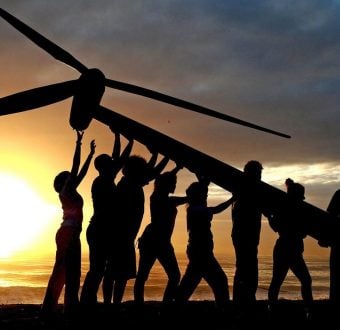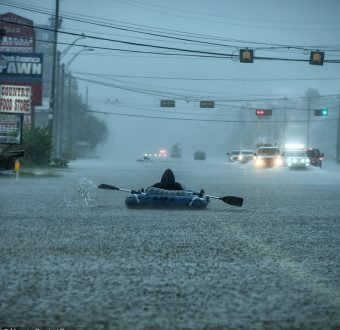Its been a long time coming. But for the first time in a while, Duke has been turned down by a regulator.
On Wednesday, Duke submitted its plan to N.C.s Department of Natural Resources (DENR) for safely handling coal ash at its power plants dumps. The plan comes after a disastrous coal ash spill at Dukes Dan River plant, the third largest in U.S. history. The next day, DENR rejected the plan.
Duke Energys response is inadequate, stated DENR head John Skvarla.
There are far too many questions left unanswered, and Duke Energy should provide the information we originally requested, including the estimated costs of cleanup, plans for the future and a detailed timeline.
Skvarlas response was certainly the right one. But in context, the entire proceedings reflect a regulatory system still stumbling from its shady past.
A lot to own up to
Governor McCrory and DENR requested the plan from Duke on February 25. Both had more than ethical reasons for putting Duke to work.
Governor McCrory, a former Duke employee of 28 years, faces newfound suspicion over his financial ties to the company.
DENR is under federal criminal investigation following a report that it had covered for Dukes coal ash pollution, sidelining citizen lawsuits, and settling with the $50-billion company for a mere $99,000. DENR head John Skvarla, a McCrory appointee, has struggled to defend his agencys integrity.
Duke, meanwhile, appears as comfortable with DENR as it had before the spill.Its response to McCrory and DENRs request extended a mere 4 pages. Only one page was dedicated to the companys comprehensive coal ash plan. Under the original request, Duke has until today to provide the details Skvarla demanded. Duke reportedly doesnt plan to meet that deadline.
Skvarlas rejection of Dukes plan was also overshadowed by released emails between DENR and Duke acquired by the Southern Environmental Law Center (SELC), one of the environmental groups whose coal ash lawsuits was sidelined by DENR. One email shows Duke and DENR discussing how to tamp down SELCs participation in the litigation process.
More than one agency
DENR regulators arent the only ones facing heat. On Wednesday, feds also subpoenaed Ed Finley, chairman of North Carolinas public utilities commission (NCUC), regarding his oversight of Duke and its coal ash.
As with DENR, the investigation is the tail end of a long history of accommodating Duke. Under Finley, NCUC has approved 3 hikes to Dukes electricity rates in the last 5 years. NCUC has also continuously rubber stamped the companys fossil fuel- and nuclear-dominated plant portfolio, enabling unnecessary projects for which Duke can demand more rate hikes.
Finley himself is a less than an ideal candidate for NCUC chair, having built a career as a lawyer representing utilities before taking a pay cut to become one of the most powerful people in state government.
Big decisions
A re-calibrated NCUC comes at a critical time, with major decisions heading to the commissions desk.
One is the determination over whether Duke will be allowed to charge customers for cleaning up its dumpsa charge that could approach $1 billion. As with its letter to DENR, Duke remains confident that NCUC will give the company its way.
Another important decision lies over the future of net-metering. This policy compensates a burgeoning number of solar panel owners, including homeowners with rooftop solar, for any surplus electricity they give to Duke. Duke has made it clear it wants to keep that money for itself, despite the companys own investments in solar. A recent poll finds that 89% of North Carolinians are concerned by Dukes stance.
Heres hoping that NCUC will break its habit, and please North Carolinians as much as it has Duke.



